
Kelibia: Tunisia's Coastal Gem
Kelibia, located on the northeast coast of Tunisia, is a hidden gem that offers a perfect blend of history, culture, and natural beauty. Known for its pristine beaches and crystal-clear waters, Kelibia is an ideal destination for sun-seekers and water sports enthusiasts. The town is famous for its fishing port, where you can witness the daily life of local fishermen and indulge in freshly caught seafood at the nearby restaurants. One of the key attractions of Kelibia is the Kelibia Fort, also known as the Kelibia Castle. Perched on a hilltop, this ancient fortress offers panoramic views of the Mediterranean Sea and the surrounding landscape. The fort's historical significance and well-preserved structure make it a must-visit for history buffs and architecture enthusiasts. Kelibia is also known for its vineyards and wine production. The local wine, especially the Muscat of Kelibia, is highly regarded and offers a unique taste of the region. A visit to the vineyards provides an opportunity to learn about the wine-making process and sample some of the best wines Tunisia has to offer. For those interested in outdoor activities, the beaches of Kelibia are perfect for swimming, snorkeling, and windsurfing. The nearby Kerkouane archaeological site, a UNESCO World Heritage site, offers a glimpse into the ancient Punic civilization that once thrived in the region.
Local tips in Kelibia
- Visit the Kelibia Fort early in the morning or late afternoon to avoid the heat and enjoy the best views.
- Try the local Muscat wine at one of the vineyards; it's a unique experience you won't want to miss.
- Pack comfortable shoes for exploring the archaeological site of Kerkouane.
- If you plan to enjoy water sports, ensure you bring your own equipment or check rental availability in advance.
- Don't miss the fresh seafood at the local restaurants near the fishing port; it's a culinary highlight.
Kelibia: Tunisia's Coastal Gem
Kelibia, located on the northeast coast of Tunisia, is a hidden gem that offers a perfect blend of history, culture, and natural beauty. Known for its pristine beaches and crystal-clear waters, Kelibia is an ideal destination for sun-seekers and water sports enthusiasts. The town is famous for its fishing port, where you can witness the daily life of local fishermen and indulge in freshly caught seafood at the nearby restaurants. One of the key attractions of Kelibia is the Kelibia Fort, also known as the Kelibia Castle. Perched on a hilltop, this ancient fortress offers panoramic views of the Mediterranean Sea and the surrounding landscape. The fort's historical significance and well-preserved structure make it a must-visit for history buffs and architecture enthusiasts. Kelibia is also known for its vineyards and wine production. The local wine, especially the Muscat of Kelibia, is highly regarded and offers a unique taste of the region. A visit to the vineyards provides an opportunity to learn about the wine-making process and sample some of the best wines Tunisia has to offer. For those interested in outdoor activities, the beaches of Kelibia are perfect for swimming, snorkeling, and windsurfing. The nearby Kerkouane archaeological site, a UNESCO World Heritage site, offers a glimpse into the ancient Punic civilization that once thrived in the region.
When is the best time to go to Kelibia?
Iconic landmarks you can’t miss
Kelibia Fort
Discover the historic Kelibia Fort, an ancient fortress offering stunning Mediterranean views and a glimpse into Tunisia's rich heritage.
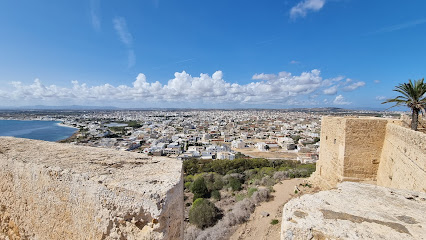
Plage de La Mansourah
Experience the pristine beauty of Plage de La Mansourah in Kelibia, Tunisia, where golden sands meet crystal-clear waters and stunning sunsets.
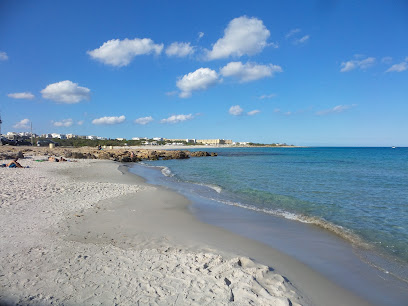
Plage kelibia
Experience the breathtaking beauty of Plage Kelibia, a coastal paradise in Tunisia with golden sands and crystal-clear waters.
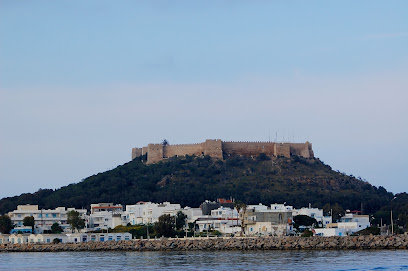
Port de Kélibia
Discover the charm of Port de Kélibia, a stunning seaport in Tunisia offering breathtaking views, rich history, and delicious seafood.
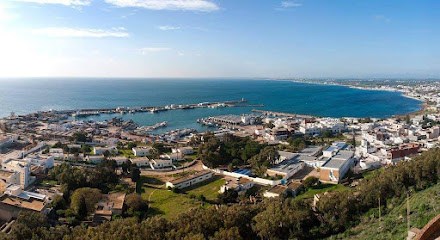
Lighthouse of Kelibia
Discover the stunning Lighthouse of Kelibia, where breathtaking views and rich maritime history meet the azure waves of the Mediterranean Sea.
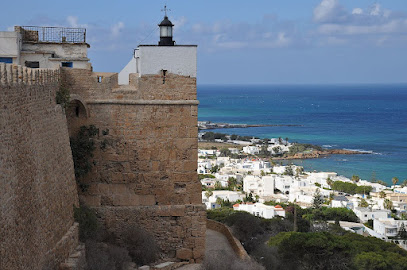
Ruines de Kélibia
Uncover the rich history and stunning views at the Ruines de Kélibia, a breathtaking historical landmark on Tunisia's coast.
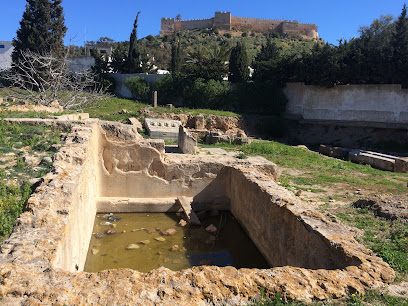
Unmissable attractions to see
Manége de Kelibia
Experience the thrill of rides and the joy of family fun at Manège de Kelibia, a top amusement park in the heart of Tunisia's coastal paradise.
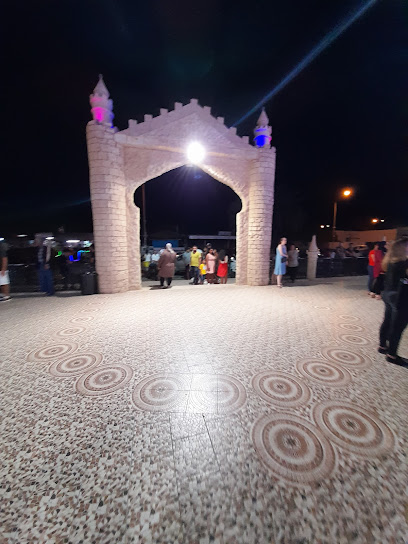
الجامع الكبير
Discover the architectural splendor and spiritual heritage of the Great Mosque in Kelibia, a captivating tourist attraction in Tunisia.
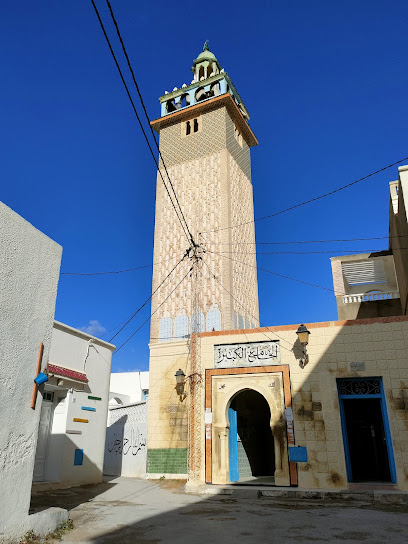
Petit paradis
Experience the tranquil beauty of Petit Paradis in Kelibia, a stunning tourist attraction perfect for relaxation and nature exploration.
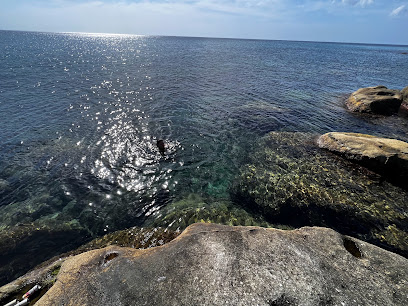
Al Marsa plage
Experience the tranquil beauty of Al Marsa Plage in Kelibia, a coastal gem perfect for relaxation and scenic views of the Mediterranean.
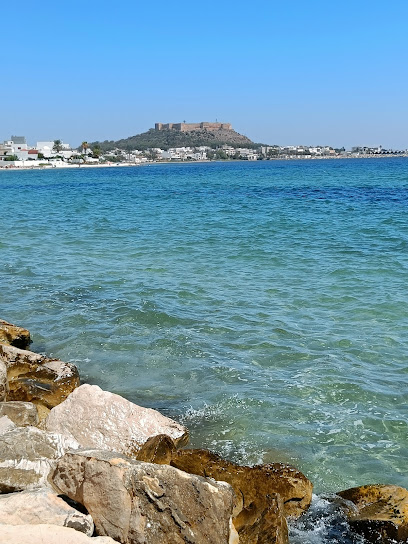
Dar lansari
Explore the rich cultural heritage of Dar Lansari in Kelibia, a captivating tourist attraction that offers a glimpse into Tunisia's storied past.

Jardin de la station
Discover the serene beauty of Jardin de la Station, a peaceful oasis in Kelibia perfect for relaxation and enjoying nature's bounty.
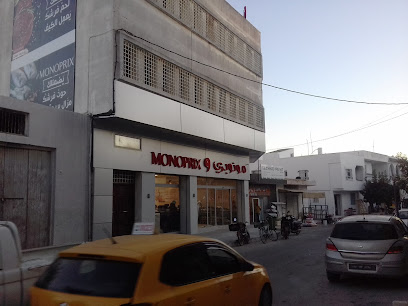
Baccar's Farm
Experience the tranquil beauty of Baccar's Farm in Kelibia, Tunisia - a perfect escape into nature and local culture.

Rond point Kelibia
Experience the stunning coastal views and vibrant atmosphere at Rond Point Kelibia, a must-visit tourist attraction in Tunisia.
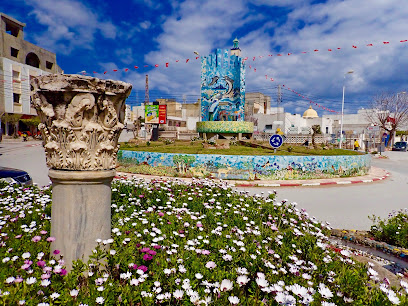
Menzel Ibrahim Geblaoui
Discover the coastal beauty and rich heritage of Menzel Ibrahim Geblaoui in Kelibia, Tunisia—a perfect escape for travelers seeking tranquility and culture.

Essential places to dine
Mansoura Restaurant
Experience the authentic flavors of Tunisia at Mansoura Restaurant in Kelibia - a culinary gem with exquisite dishes and inviting atmosphere.
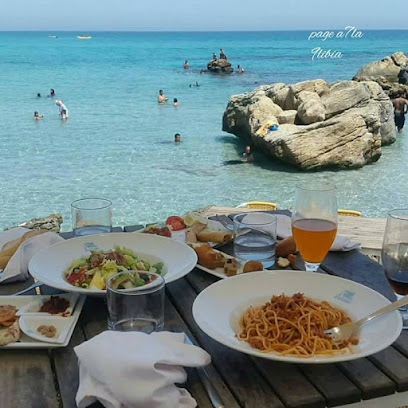
Restaurant Bar Monaco Bay
Experience exquisite dining at Restaurant Bar Monaco Bay in Kelibia, where delicious seafood meets breathtaking Mediterranean views.
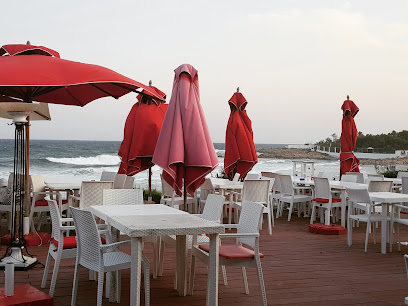
Le Petit Pêcheur
Experience authentic Italian flavors at Le Petit Pêcheur in Kélibia - where fresh seafood meets stunning Mediterranean views.
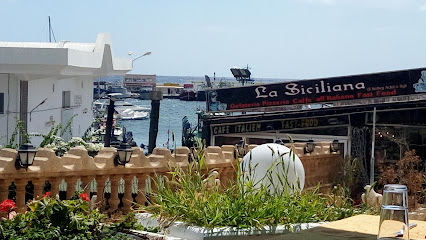
Restaurant & Salon de Thé L'Opera
Experience the best of Tunisian cuisine at Restaurant & Salon de Thé L'Opera in Kélibia – where tradition meets modern flavor.
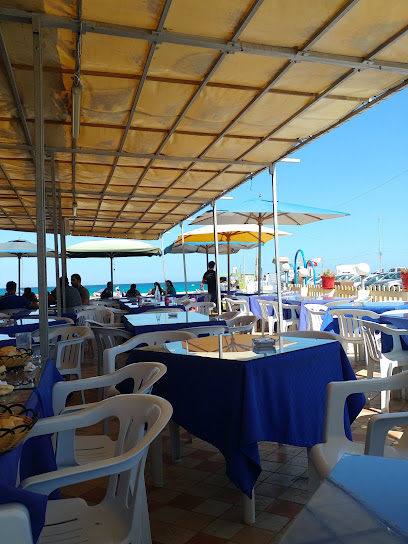
Toro Fish
Experience the finest seafood in Kélibia at Toro Fish - where fresh ingredients meet authentic Tunisian flavors.
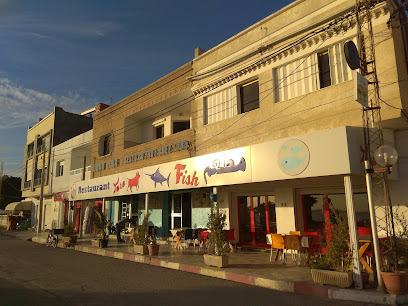
مطعم Bella Marina
Discover Bella Marina in Kelibia - where exquisite Tunisian cuisine meets breathtaking Mediterranean views.
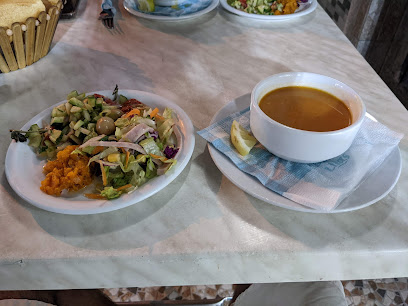
Dar Kenza
Experience authentic Tunisian cuisine at Dar Kenza in Kelibia, where every meal is a celebration of local flavors and hospitality.
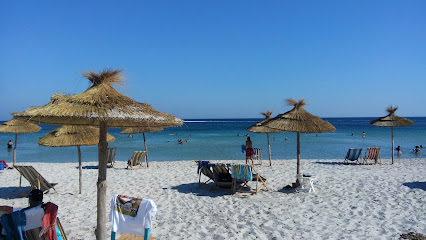
Le Vieux Port
Savor authentic Tunisian cuisine with stunning Mediterranean views at Le Vieux Port in Kelibia.
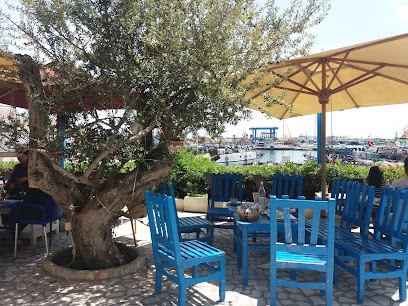
Mosaïque Cafe-Restaurant & Wedding Venue
Discover Mosaïque Cafe-Restaurant in Kelibia: where local Tunisian flavors meet exquisite French cuisine amidst stunning views.
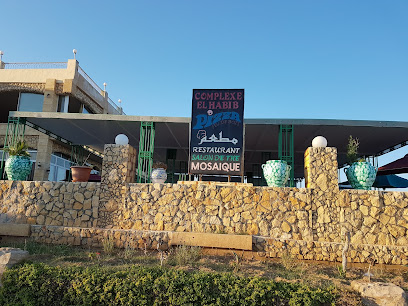
Hits Tunisie
Discover culinary delights at Hits Tunisie in Kélibia—where local flavors meet international flair amidst stunning coastal views.
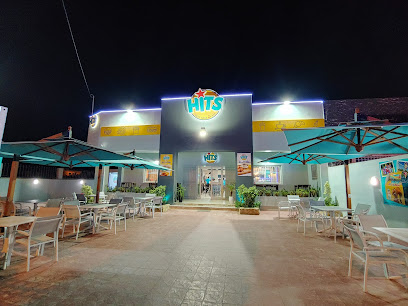
La Siciliana
Discover authentic Italian cuisine at La Siciliana in Kelibia – where every slice tells a story.
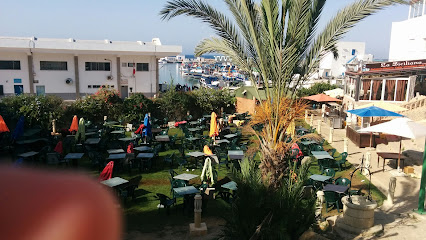
El Bahri Restaurant
Discover culinary delights at El Bahri Restaurant in Kelibia, where fresh seafood meets breathtaking views and warm hospitality.
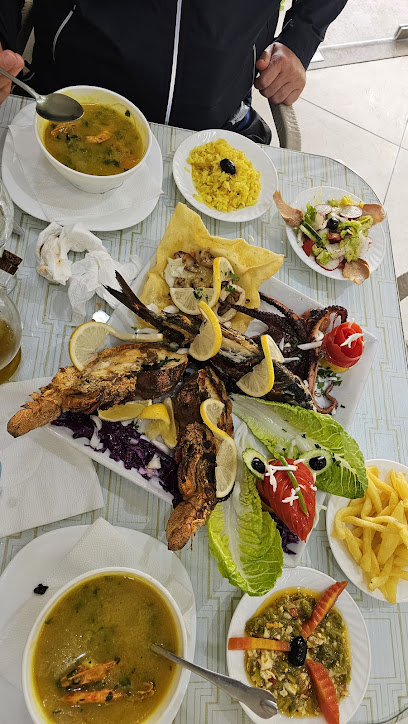
Le Marin
Experience authentic Tunisian cuisine at Le Marin in Kelibia – where fresh seafood meets warm hospitality in a charming coastal setting.
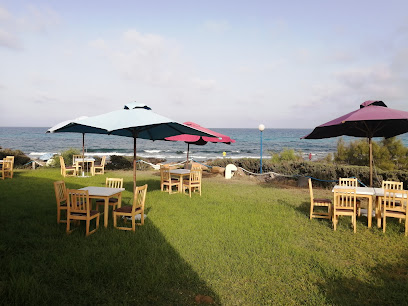
La Mamma
Experience authentic Mediterranean flavors at La Mamma in Kelibia, where fresh ingredients meet warm hospitality in a charming coastal setting.
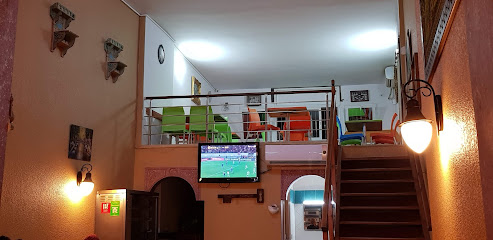
Resto café la VAGUE
Experience authentic Tunisian cuisine with stunning views at Resto Café la VAGUE in beautiful Kélibia.
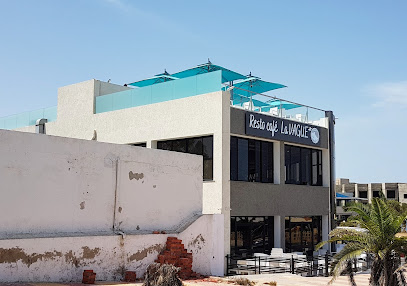
Markets, malls and hidden boutiques
Vimoul Kélibia
Explore Vimoul Kélibia: a cultural gem in Kelibia, showcasing authentic Tunisian crafts and unique souvenirs for every traveler.
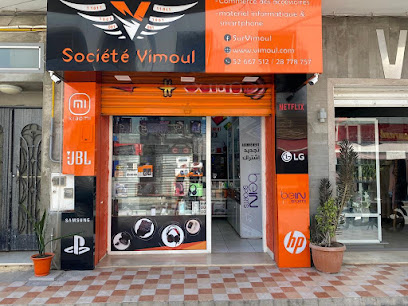
ZEN KELIBIA
Explore unique Tunisian fashion at ZEN KELIBIA, a vibrant clothing store in the heart of Kélibia, perfect for every style enthusiast.
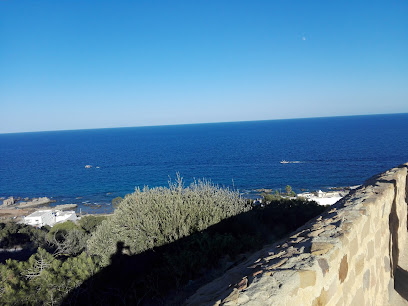
Ché&Ché
Discover unique Tunisian craftsmanship at Ché&Ché, a boutique in Kélibia offering exquisite clothing, jewelry, and home decor.

Patis-Store kélibia
Discover the sweet tastes of Tunisia at Patis-Store Kélibia, where every treat tells a story of tradition and flavor.

Golden store kelibia
Explore Golden Store Kelibia, your destination for unique Tunisian gifts and handcrafted treasures in the heart of Kelibia.

Packaging store kelibia
Discover unique souvenirs and local crafts at the charming Packaging Store in Kélibia, reflecting Tunisia's rich cultural heritage.
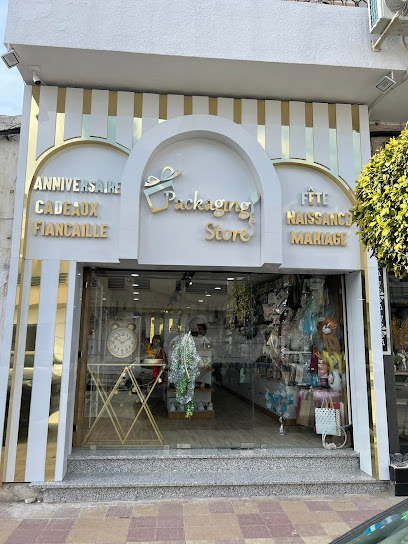
Bazar al tamayez
Discover the finest Tunisian souvenirs at Bazar al Tamayez in Kelibia, where culture and craftsmanship meet.
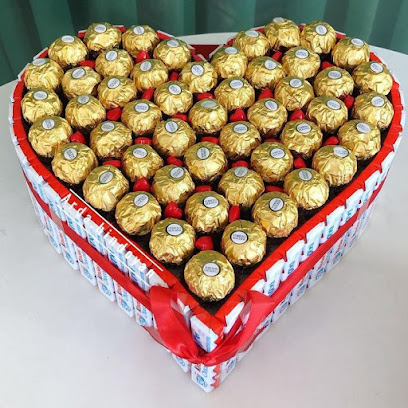
Kadasia collection
Explore Kadasia Collection in Kelibia for unique gifts and authentic Tunisian handicrafts that capture the essence of your travels.

ADAM Cadeau
Discover unique gifts and authentic Tunisian souvenirs at ADAM Cadeau in scenic Kelibia, perfect for capturing the essence of your travels.
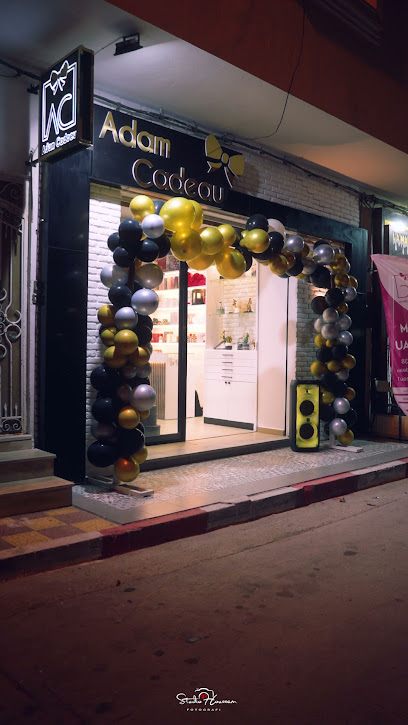
Boutique d'artisanat
Explore Boutique d'artisanat in Kelibia for unique handcrafted home goods that embody the spirit of Tunisian artistry and culture.
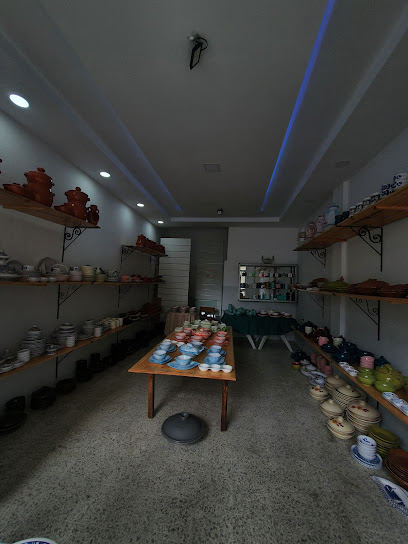
Boutique trésor kelibia
Experience the vibrant fashion scene at Boutique Trésor Kelibia, a unique clothing store offering a blend of local craftsmanship and modern style.
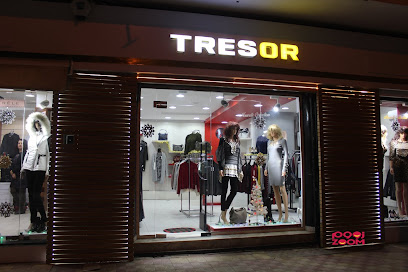
Boutique Flora - Kélibia
Explore Boutique Flora in Kélibia for a stylish selection of women's clothing that reflects Tunisia's vibrant culture and fashion.

Artizone
Explore Artizone in Kélibia for unique, handcrafted fashion accessories that beautifully represent Tunisian culture and artistry.
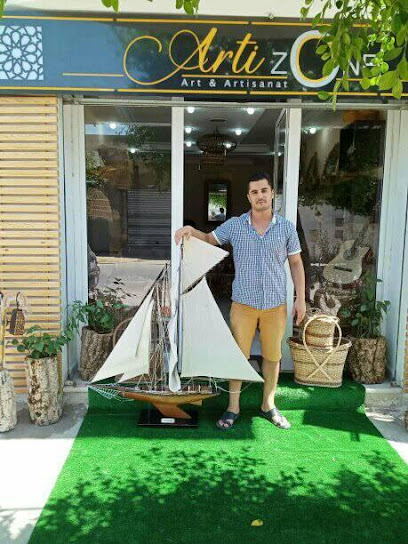
MEGASPORT KELIBIA
Discover the ultimate sportswear shopping experience at MEGASPORT KELIBIA, where quality meets style in the heart of Tunisia.
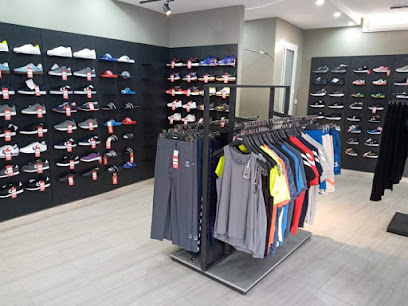
Vape kélibia
Explore Vape Kélibia, your ultimate destination for premium vaporizers and accessories in the heart of Tunisia's stunning coastal town.

Essential bars & hidden hideouts
Restaurant Bar Monaco Bay
Discover culinary delights and breathtaking views at Restaurant Bar Monaco Bay, a perfect coastal dining spot in Kelibia.
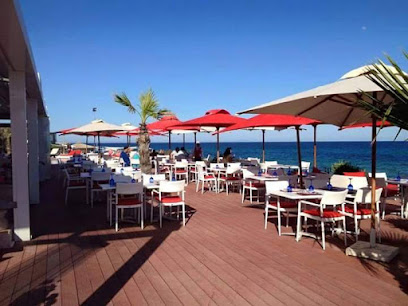
Toro Fish
Savor the freshest seafood and vibrant Tunisian flavors at Toro Fish, a culinary gem in Kélibia's coastal paradise.
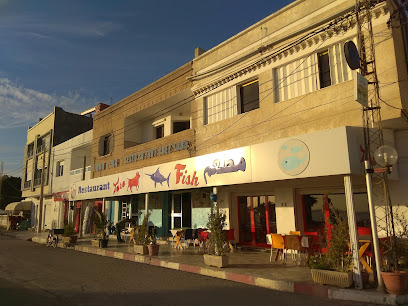
Mosaïque Cafe-Restaurant & Wedding Venue
Discover the flavors of France at Mosaïque Cafe-Restaurant, a charming dining experience in the heart of Kelibia, Tunisia.
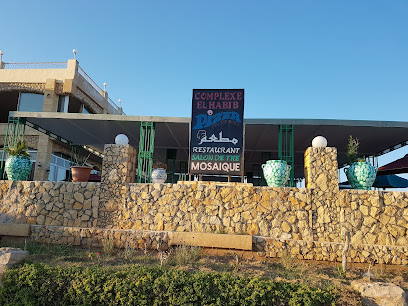
Le Vieux Port
Experience the best of Tunisian coastal cuisine at Le Vieux Port in Kelibia, where every meal is a celebration of local flavors and stunning Mediterranean views.
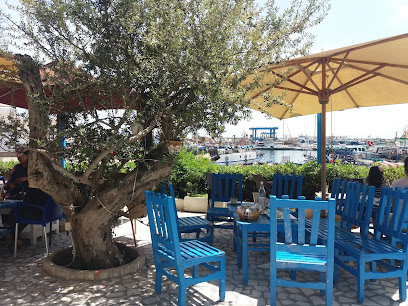
Hits Tunisie
Discover the flavors of Tunisia at Hits Tunisie, a charming restaurant in Kélibia offering local and international cuisine in a welcoming atmosphere.
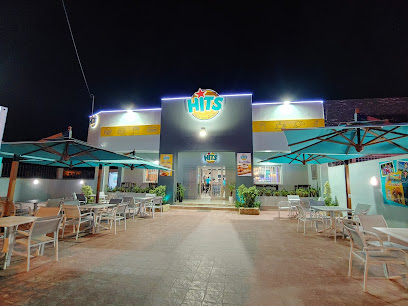
Le Marin
Discover the flavors of Tunisia at Le Marin in Kelibia, a charming restaurant offering delectable local dishes and stunning views.
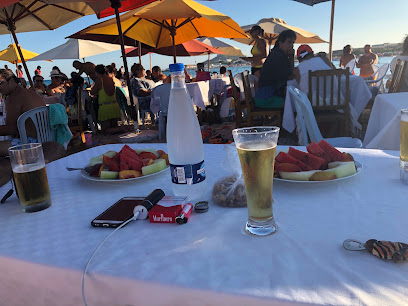
Resto café la VAGUE
Discover Resto Café la VAGUE in Kélibia: A charming restaurant offering authentic Tunisian cuisine and stunning coastal views for an unforgettable dining experience.
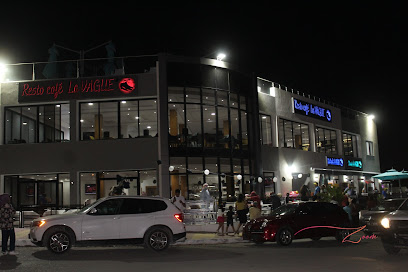
Palm Beach Kelibia
Experience the best of Tunisian cuisine at Palm Beach Kelibia, where fresh seafood meets stunning sea views and warm hospitality.
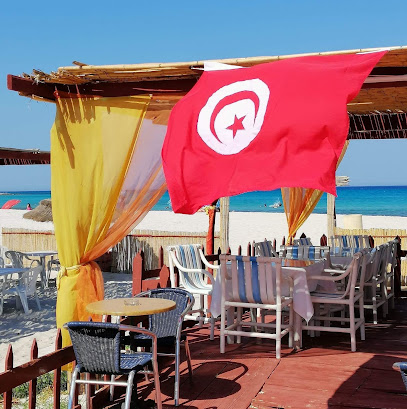
Happy Hour
Happy Hour in Kelibia: Experience the best of Mediterranean cuisine with stunning views and a warm atmosphere.
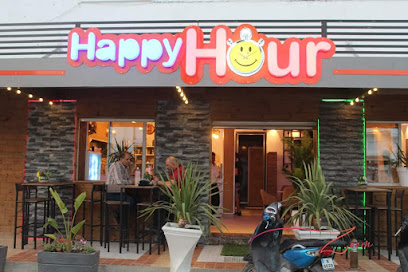
Clandestino
Experience the authentic flavors of Kélibia at Clandestino, where local cuisine meets a warm, inviting atmosphere.
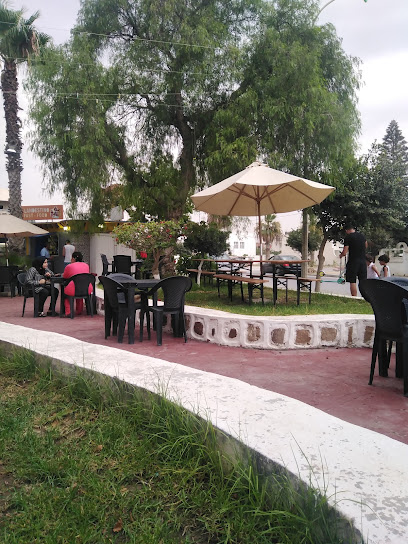
Espace LINA
Discover Espace LINA in Kélibia for mouthwatering grilled dishes and a friendly atmosphere, perfect for tourists seeking local cuisine.
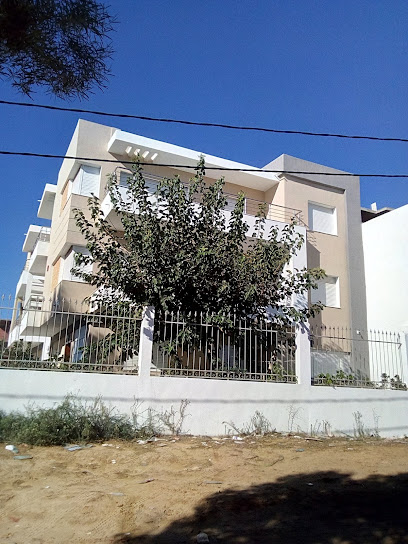
Vogue
Experience the finest Mediterranean cuisine at Vogue, a seaside restaurant in Kélibia offering stunning views and delightful flavors.

VR Pub
Experience the vibrant atmosphere of VR Pub in Kelibia, where local flavors meet stunning coastal views for an unforgettable evening.
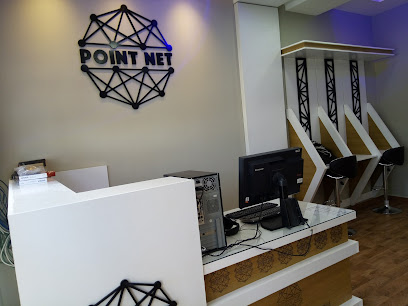
Lounge Cafe
Discover the flavors of Tunisia at Lounge Cafe in Kélibia, where every meal is a delightful experience amidst a cozy atmosphere.
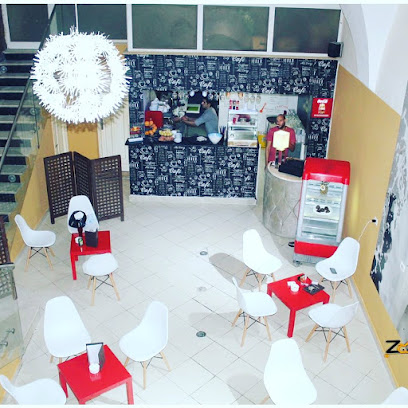
Street Food Kelibia
Experience authentic Tunisian street food at Street Food Kelibia, a culinary gem with flavors that capture the heart of the region.
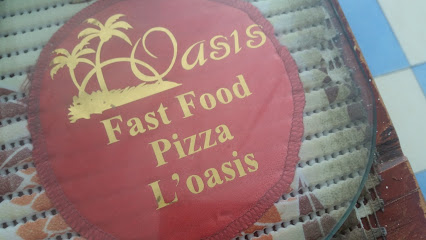
Local Phrases about Kelibia
-
- Helloمرحبا
[marhaba] - Goodbyeوداعا
[wada'an] - Yesنعم
[naam] - Noلا
[la] - Please/You're welcomeمن فضلك
[min fadlik] - Thank youشكرا
[shukran] - Excuse me/Sorryعذرا
[aathir] - How are you?كيف حالك؟
[kayfa halik?] - Fine. And you?بخير. وأنت؟
[bikhayr. wa'ant?] - Do you speak English?هل تتحدث الإنجليزية؟
[hal tatahadath al-inglizia?] - I don't understandلا أفهم
[la afham]
- Helloمرحبا
-
- I'd like to see the menu, pleaseأريد أن أرى القائمة، من فضلك
[urid an ara alqaimah, min fadlik] - I don't eat meatأنا لا آكل اللحم
[ana la akol allahm] - Cheers!في صحتك!
[fi sahtak!] - I would like to pay, pleaseأريد أن أدفع، من فضلك
[urid an adfaa, min fadlik]
- I'd like to see the menu, pleaseأريد أن أرى القائمة، من فضلك
-
- Help!النجدة!
[an-najdah!] - Go away!انصرف!
[ansraf!] - Call the Police!اتصل بالشرطة!
[it'sal bilshurutah!] - Call a doctor!اتصل بطبيب!
[it'sal bitabib!] - I'm lostلقد ضاعت الطريق
[leqid da'at altariq] - I'm illأنا مريض
[ana mariid]
- Help!النجدة!
-
- I'd like to buy...أريد أن أشتري...
[urid an ashtari...] - I'm just lookingأنا فقط أتطلع
[ana faqat atatalla] - How much is it?كم سعره؟
[kam si'ruh?] - That's too expensiveهذا غالي جدا
[hatha ghali jiddan] - Can you lower the price?هل يمكنك خفض السعر؟
[hal yumkinuk khafd alsi'ur?]
- I'd like to buy...أريد أن أشتري...
-
- What time is it?كم الساعة؟
[kam alsaa'ah?] - It's one o'clockالساعة الواحدة
[alsaa'ah alwahidah] - Half past (10)العاشر والنصف
[al'ashir walnusf] - Morningصباح
[sabah] - Afternoonبعد الظهر
[ba'd althuhr] - Eveningمساء
[masa'] - Yesterdayأمس
[ams] - Todayاليوم
[alyawm] - Tomorrowغدا
[ghadan] - 1واحد
[wahid] - 2اثنين
[ithnayn] - 3ثلاثة
[thalatha] - 4أربعة
[arba'a] - 5خمسة
[khamsa] - 6ستة
[sitta] - 7سبعة
[sab'a] - 8ثمانية
[thamaniya] - 9تسعة
[tis'a] - 10عشرة
[ashara]
- What time is it?كم الساعة؟
-
- Where's a/the...?أين ال...؟
[ayn al...?] - What's the address?ما هو العنوان؟
[ma huwa al'unnwan?] - Can you show me (on the map)?هل يمكنك أن تريني (على الخريطة)؟
[hal yumkinuk 'an tureeni (ala alkhareetah)?] - When's the next (bus)?متى الحافلة القادمة؟
[mata alhafilat alqadimah?] - A ticket (to ....)تذكرة (إلى ....)
[tadhkirah (ila ....)]
- Where's a/the...?أين ال...؟
History of Kelibia
-
Kelibia, known in ancient times as Aspis or Clupea, was initially established by the Phoenicians. Due to its strategic location on the Cap Bon peninsula, it became an important Punic settlement. The city served as both a trading post and a military stronghold, pivotal in the network of Phoenician colonies across the Mediterranean.
-
Following the Punic Wars, Kelibia fell under Roman control. The Romans recognized the strategic importance of the city and further developed its infrastructure. They built fortifications, roads, and established Kelibia as a key port. The remnants of Roman architecture and infrastructures, such as roads and ruins, can still be found in the area.
-
In the 6th century, Kelibia was taken over by the Byzantine Empire. The Byzantines fortified the city further, constructing the impressive Kelibia Fort, which still dominates the skyline today. The fort served as a crucial defensive structure against the numerous invaders that threatened the region during this period.
-
In the 7th century, Kelibia was conquered by Arab forces during the early Islamic expansion. The city became part of the Ifriqiya province under the Aghlabids and later the Fatimids. Kelibia played a role in the spread of Islam and Arab culture throughout the region, with mosques and other Islamic architectural features being integrated into the city.
-
In the 16th century, Kelibia came under Ottoman rule. The city was integrated into the Ottoman Empire and continued to serve as a crucial defensive and trading port. The Ottomans further enhanced the city's fortifications and infrastructure, leaving a lasting architectural and cultural impact.
-
Kelibia, like the rest of Tunisia, fell under French control in the late 19th century. During the French Protectorate, the city underwent modernization while retaining its historical charm. Post-independence, Kelibia has grown into a vibrant city known for its fishing industry, historical sites, and beautiful beaches. The blend of ancient history and modern culture makes it a unique destination.
-
Kelibia is renowned for its rich cultural heritage. The city hosts several festivals and events that celebrate its history and traditions. The International Amateur Film Festival of Kelibia (FIFAK) is one of the notable events, attracting filmmakers and tourists from around the globe. The local cuisine, crafts, and traditional music also reflect the diverse historical influences that have shaped Kelibia.
Kelibia Essentials
-
Kelibia is located on the northeastern coast of Tunisia. The nearest international airport is Tunis-Carthage International Airport in Tunis, approximately 110 kilometers away. From Tunis, you can take a taxi, a louage (shared taxi), or a bus to Kelibia. The journey typically takes around 2 to 3 hours by road. Renting a car is also an option, offering flexibility and convenience.
-
Kelibia is a relatively small town, so many attractions are within walking distance. For longer distances, you can use local taxis, which are readily available and reasonably priced. Louages (shared taxis) operate between Kelibia and nearby towns and cities. Buses are another option for public transportation, though they may be less frequent. Renting a car can be a convenient way to explore the surrounding areas at your own pace.
-
The official currency in Tunisia is the Tunisian Dinar (TND). Credit cards are accepted in most hotels, restaurants, and larger shops, but it is advisable to carry cash, especially when visiting smaller establishments and markets. ATMs are available in Kelibia, but it is a good idea to withdraw sufficient cash before traveling to more remote areas.
-
Kelibia is generally a safe destination for tourists. However, it is always advisable to take standard precautions, such as avoiding walking alone at night in unfamiliar areas and keeping an eye on your belongings in crowded places. There are no specific high-crime areas targeting tourists in Kelibia, but staying vigilant and aware of your surroundings is always a good practice.
-
In case of emergency, dial 197 for police assistance or 190 for medical emergencies. Kelibia has local police stations and medical facilities available. It is recommended to have travel insurance that covers medical emergencies. For minor health issues, there are pharmacies in the town where you can purchase over-the-counter medications.
-
Fashion: Do dress modestly, especially when visiting religious sites. Avoid wearing revealing clothing. Religion: Do respect local customs and traditions. Always cover your head when entering mosques. Public Transport: Do be respectful and give up your seat to elderly passengers. Don’t eat or drink on public transport. Greetings: Do greet people with a handshake. A polite greeting in Arabic (e.g., 'Salam Alaikum') is appreciated. Eating & Drinking: Do try local delicacies and accept food offerings graciously. Don't refuse hospitality, as it is considered impolite.
-
To experience Kelibia like a local, visit the local markets where you can buy fresh produce and traditional Tunisian goods. Engage with locals, as they are often friendly and willing to share stories about the town's history and culture. Don't miss visiting the Kelibia Fort, which offers stunning views of the Mediterranean Sea. For a unique experience, spend an afternoon at one of the local beaches, such as Plage el Mansoura, known for its clear waters and beautiful sands.
Nearby Cities to Kelibia
-
Things To Do in Tunis
-
Things To Do in Bizerte
-
Things To Do in Sousse
-
Things To Do in Monastir
-
Things To Do in Sfax
-
Things To Do in Palermo
-
Things To Do in Xlendi
-
Things To Do in Marsalforn
-
Things To Do in Gozo
-
Things To Do in Xaghra
-
Things To Do in Xewkija
-
Things To Do in Annaba
-
Things To Do in Mellieha
-
Things To Do in Mgarr
-
Things To Do in Bugibba







